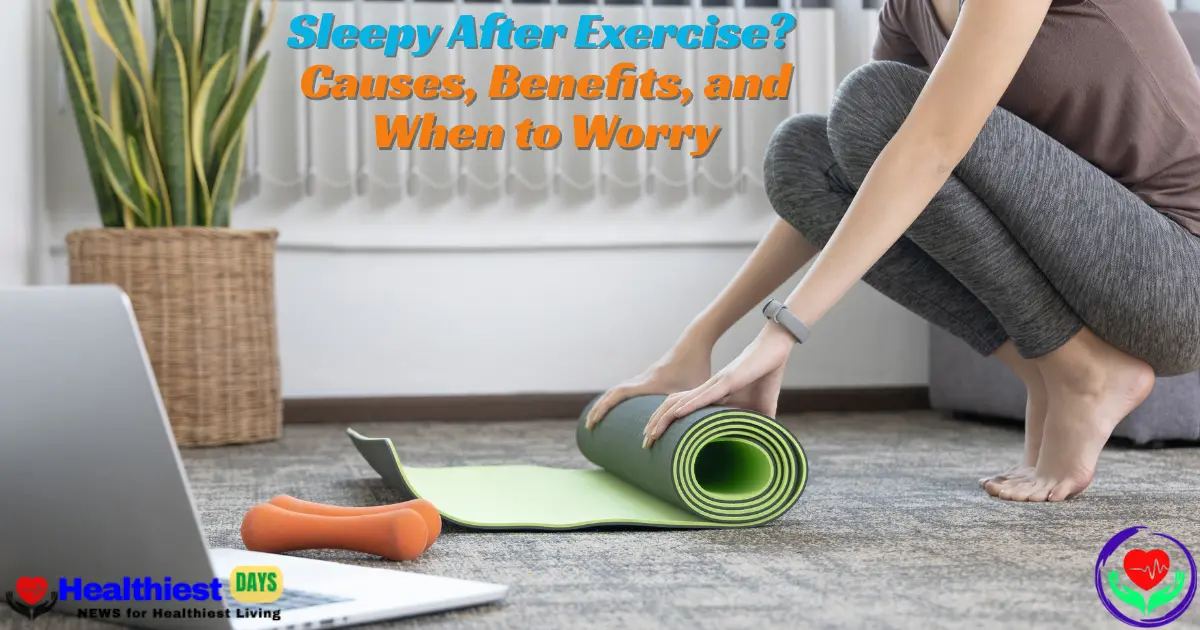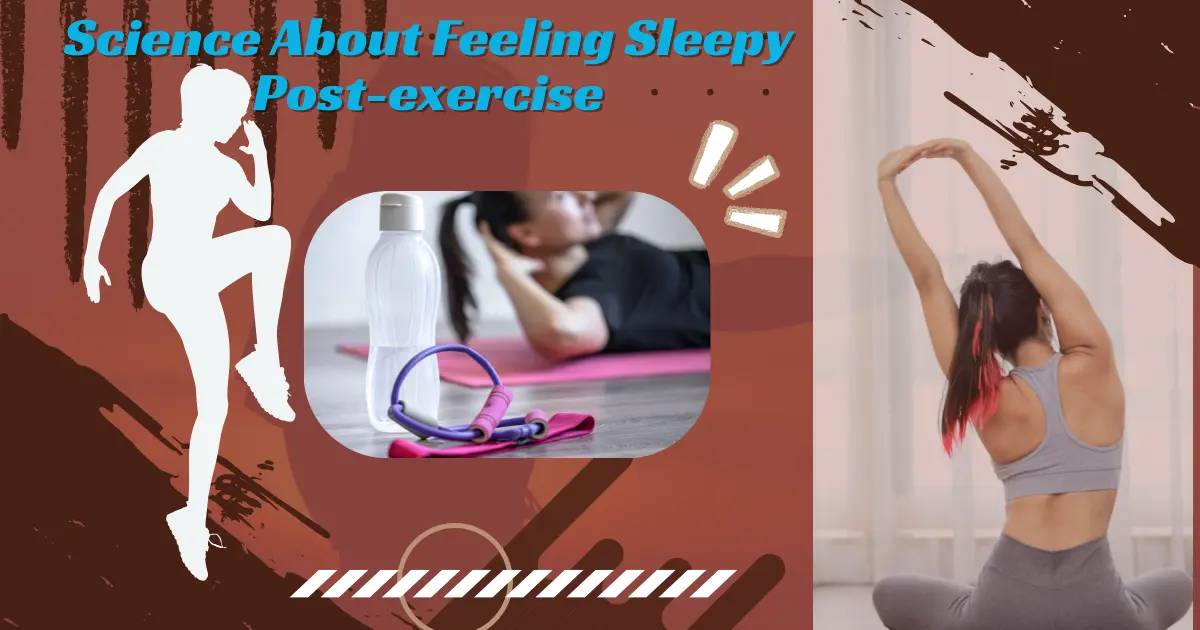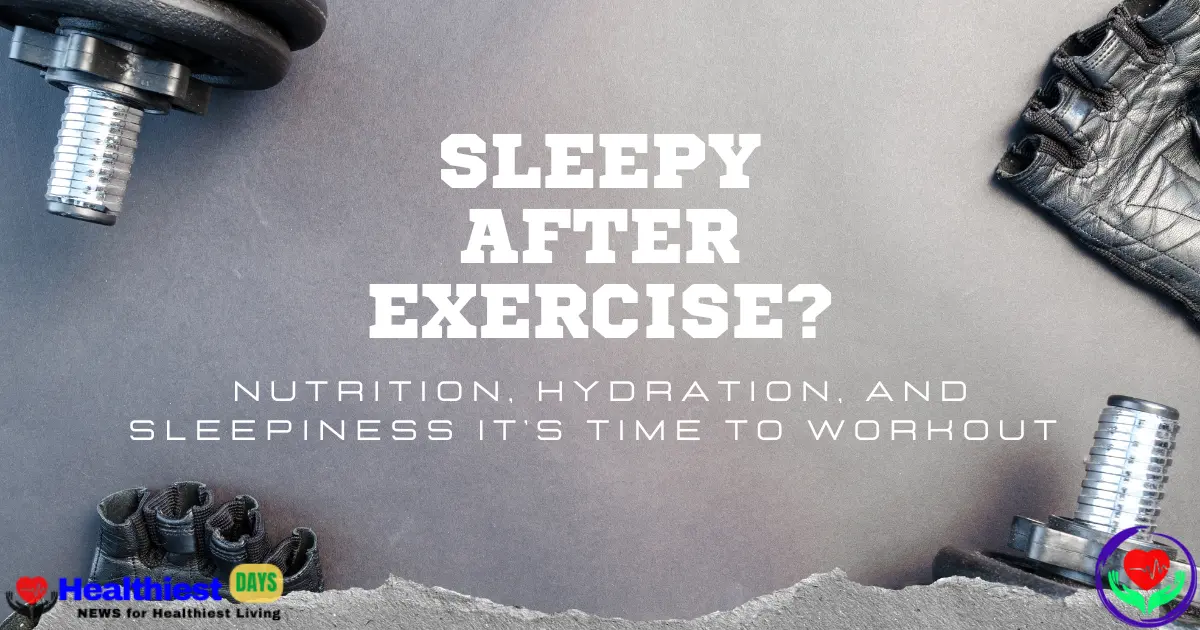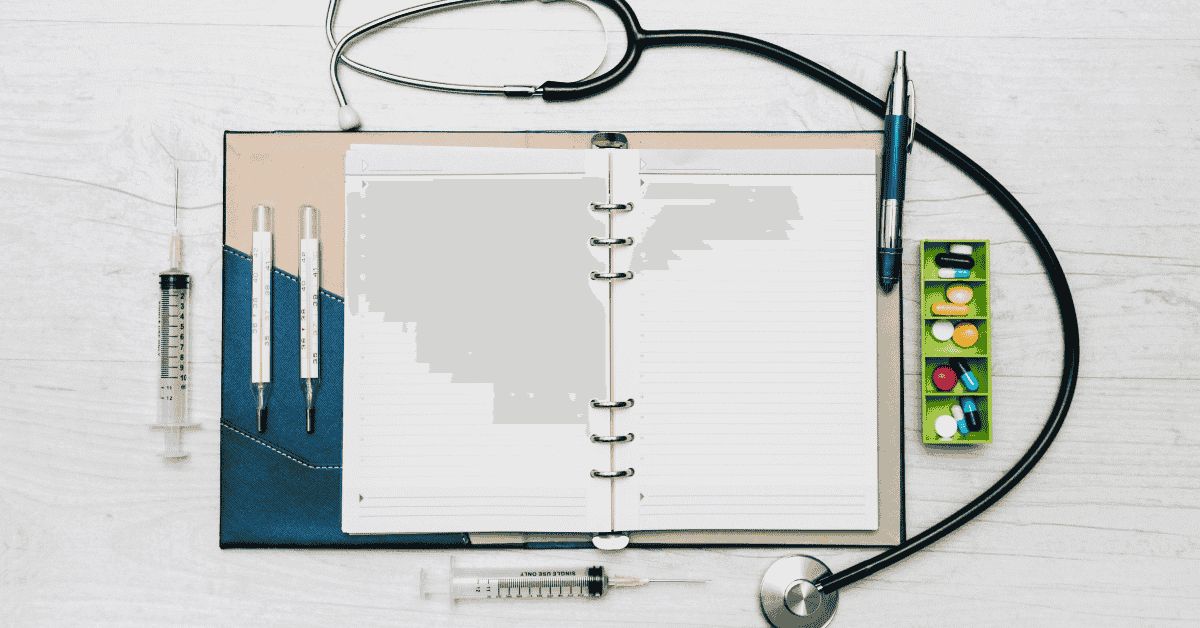Sleepy After Exercise? Causes, Benefits, and When to Worry
Feeling sleepy after exercise becomes a real menace if you are unable to understand the basic energy demands of your body. It requires a balanced diet and a perfect nutrient supply by maintaining a proper energy supply in your body.
But if you’re consistently feeling sleepy after exercise, you’re not alone in facing this issue for a long time. You’re not lazy at all. It has become a common myth that post-workout symptoms could be your body’s natural signal telling you something important.
In this guide, we’ll break down exactly why you feel tired after working out and how to tell if the exact scenario is normal or concerning. What are the steps that you probably take to improve both your fitness and recovery? Let’s decode it and try to understand the science of post-exercise sleepiness once and for all.
Why Do You Feel Sleepy After Exercise?
The sensation of fatigue or drowsiness after a workout isn’t just that; it simply starts to occur in your head. It is deeply connected to the fact of how your body uses energy, repairs muscles, and regulates hormones. Here’s why:

1. Energy Depletion (ATP Burnout)
Exercise specifically consumes a molecule called adenosine triphosphate (ATP)—your body’s main energy source. It is the energy currency of your entire body. As ATP levels drop within your body, your body enters a state of temporary fatigue until they’re restored and you have taken the required amount of energy.
2. Muscle Repair and Recovery
Your body begins repairing the essential process of micro-tears in muscle fibers right after a workout. It is a process that requires rest by releasing growth hormone. It improves the process of sleep, especially deep (slow-wave) sleep.
3. Cortisol and Hormone Fluctuations
Intense workout routines can trigger a sharp increase in cortisol. It plays an important role in regulating energy in your body. It is called a hormone. It elevates at higher levels, which can cause a circadian rhythm by leaving you exhausted.
4. Body Temperature and Cooling
Exercise rapidly enhances your core body temperature, and as it cools post-workout. In this way, your brain recalls it as a sleep trigger, similar to what happens before bedtime.
5. Overtraining and Underfueling
Consider a situation in which your body is consuming a lot of energy due to multiple training sessions. It demands a continuous supply of energy in your body. If you are unable to provide the essential energy, you may experience multiple issues managing the energy demands of your body.
In a nutshell, your body will be fatigued and sleepy in the morning.
Quick Comparison Table: Sleepy vs. Normal Post-Workout Fatigue:
| Symptom | Normal Response | May Need Attention |
| Mild tiredness | ✅ Yes | ❌ No |
| Falling asleep unintentionally | ❌ No | ✅ Yes (See doctor) |
| Mood boost after a nap | ✅ Normal recovery | ❌ If mood stays low |
| Sleepiness and dizziness | ❌ No | ✅ Could signal overtraining |
| Fatigue lasting more than 2 hours | ❌ No | ✅ Overexertion or poor diet |
Is Sleepiness After Exercise Good?
Surprisingly, the answer is yes in many cases, especially feeling sleepy after exercise.

Benefits of Feeling Sleepy After Exercise:
- Your body is entering a repair mode, signaling proper muscle recovery by meeting energy demands on time.
- It may indicate efficient sleep pressure buildup, which improves nighttime sleep by completing energy requirements after exercise.
- If your workout was in the evening, it may help you fall asleep faster by reducing the supply of energy in your body.
But like anything, too much isn’t always good for you at all. Chronic fatigue or brain fog after every session? That’s not a recovery process because it’s your body saying, “Slow down, please.”
Timing Matters: Morning vs. Evening Workouts
When you exercise matters almost as much as how. Here’s how timing affects your sleep patterns:
| Workout Time | Sleep Effect |
| Morning (6–9 am) | Boosts alertness, may improve sleep later |
| Afternoon (12–4 pm) | Balanced energy, ideal for performance |
| Evening (6–9 pm) | Can promote sleep (if not too intense) |
| Late night (>10 pm) | May disrupt melatonin and delay sleep |
What the Science Says about Feeling Sleepy In the Morning
A 2018 study published in the Journal of Sleep Research found that moderate-intensity workouts have a higher chance of managing total sleep time and improving deep sleep stages in adults.
Another review by the National Sleep Foundation concluded that people who engage in aerobic exercise 3x per week have a greater chance of falling asleep faster and feel more refreshed in the morning.
According to Dr. Rachel Salas, neurologist and sleep specialist at Johns Hopkins, “Post-exercise fatigue is a real and science-backed physiological response, not laziness. It reflects your body’s attempt to restore balance after exertion.”
Nutrition, Hydration, and Sleepiness
Lack of proper fuel before or after your workout could make you feel sluggish and sleepy in the morning. Some common nutritional culprits are the following:
- Skipping pre-workout meals can be more dangerous
- Not hydrating before/after brings more issues for developing bad health habits
- Low-carb or protein intake post-exercise is also a health culprit.
Try These Recovery Snacks:
| Option | Nutrient Focus |
| Greek yogurt and berries | Protein + antioxidants |
| Banana and peanut butter | Potassium + healthy fats |
| Protein smoothie | Amino acids + hydration |
Lifestyle Tips: How to Beat Post-Workout Sleepiness
If you are feeling sleepy after exercise, which becomes a hurdle, use these science-backed tips to avoid it:
1. Cool Down and Stretch
It helps lower body temperature gradually and prevents nervous system crashes in your body.
2. Use Natural Light Post-Workout
It also assists in regulating melatonin and supports your circadian clock.
3. Avoid High-Intensity Workouts Late at Night
Workout routines at night have a higher risk of damaging your health.
4. Stay Hydrated Before, During, After
Dehydration also becomes a silent energy killer.
5. Track Sleep and Recovery with Tools
You have the option to use Apps like Whoop, Oura Ring, or SleepScore to monitor how your workouts affect your sleep
When Feeling sleepy after exercise Is a Red Flag
You should see a doctor or trainer if you face the following issues:
- You feel drowsy even after light workouts, and you observe that your body demands more energy.
- You start falling asleep unintentionally and feel sleepy in the morning.
- You experience brain fog, low mood, or irritability, and post-exercise issues in your body.
- You have trouble sleeping at night despite fatigue and other issues
- You’re eating and hydrating properly but are still exhausted and feel awkward.
FAQs About Feeling Sleepy After Exercise
- Is it normal to feel sleepy after a workout?
Yes, it is very normal, especially after intense or long sessions. Your body is repairing and recovering. - Does post-workout sleep help muscle growth?
Absolutely yes, deep sleep is essential for releasing growth hormone and repairing tissues. It helps to grow your muscles. - Why do I feel sleepy after light exercise?
Poor hydration is the real cause of it. There is a need to consume 3 to 4 liters of water a day. - Does working out at night make you sleepy or wired?
It entirely depends on intensity. Light evening exercise often promotes sleep; intense exercise may disrupt it at a different level. - How can I combat the feeling of sleepiness in the morning?
You can get rid of sleeping in the morning by managing a balanced diet, planned workout schedules, and understanding the energy demands of your body.
Are you still unsure whether your fatigue is normal or a red flag? Get expert-backed tips, free workout recovery plans, and real answers at HealthiestDays.com, your go-to resource for fitness, sleep, and hormone health by knowing the healing process.








